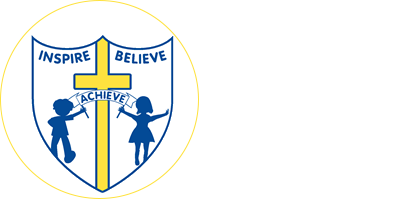At Weston St Mary Church of England Primary School, we install a love of Religious Education (RE) by ensuring it is relatable to the children’s own lives. Linking taught skills and knowledge allows children to apply their learning to everyday life and their own personal experiences. As a school we follow The Lincolnshire Agreed Syllabus for Religious Education alongside ‘Understanding Christianity ’from the Diocese of Lincoln.
Using enquiry-based learning, the syllabus provides the pupils with the knowledge and skills necessary to enable them to appreciate the way that religious beliefs shape life and behaviour. We teach the children the importance of key religious beliefs with regards to how different people around the world worship God and understand the world.
At Whaplode Church of England we aim to provide opportunities for critical thinking, personal reflection and spiritual development. It is our intent for our RE lessons to develop pupil’s questioning skills to enable pupils to evaluate and analyse their own faith and beliefs, and that of others. We aim to ensure our pupils as future citizens, value and celebrate cultural and religious diversity, in peaceful co-existence.
The Lincolnshire Syllabus aims to:
The aims from the ‘Understanding Christianity’ documents are:
At Weston St Mary Church of England Primary School, our RE curriculum is based on The Lincolnshire Syllabus for Religious Education alongside ‘Understanding the Curriculum’ from the Diocese of Lincoln. This curriculum reflects the balanced RE approach, which focuses on a balance between believing (theology), living (human/social sciences) and thinking (philosophy).

Throughout the whole school, Children at Weston St Mary Church of England Primary School will focus on the following areas of enquiry:
Wherever possible, pupils are actively engaged in exploratory and experimental learning including opportunities to:
Each faith is taught through a balanced approach where children are taught:
The RE curriculum is taught over a 2 year cycle for key stage 1 (year 1 and 2 only), lower key stage 2 and upper key stage 2.
RE is a legal requirement for all pupils on the school roll, including those in Reception year.
RE contribute to the following area of the learning goals:
In EYFS the children will learn about a range of religious celebrations through artefacts, music and stories. Pupils will begin to develop somewhat a sense of their own needs, views and feelings and begin to act sensitively to the needs and views of others. Through studying RE, pupils will develop a sense of right and wrong and how we can help each other. This will lead to the children developing an understanding of other cultures through asking questions.
Pupils will study Christianity, Creation, Salvation, Incarnation, Thankfulness and Islam.
In key stage 1, pupils are taught to:
In key stage 2, pupils are taught to:
Pupils will study Christianity, Creation, Salvation, Incarnation, Hinduism, Judaism and Islam.
Pupils at Weston St Mary Church of England Primary School will make the best possible progress and demonstrate a deepening understanding of religions. Children will be engaged and enjoy learning about Christianity, Islam, Hinduism, Judaism and other world religions and beliefs. The children will be able to make links between their own lives and those of others in their community and be able to hold a well-balanced, evidenced, and informed discussion. We enable our pupils to demonstrate a positive attitude towards people of any religion and non-religion and show an understanding of cultural beliefs different to their own. They demonstrate respectful behaviour to all and this is transferable outside of school, in the wider community and own.

We are proud to be part of the Lincoln Anglican Academy Trust more
Weston St Mary CE Primary School
Small Drove
Weston
Spalding
Lincolnshire
PE12 6HU
Telephone: 01406 370333
Email: enquiries@weston.laat.co.uk
